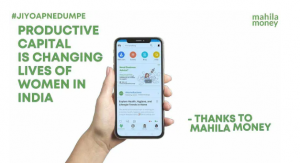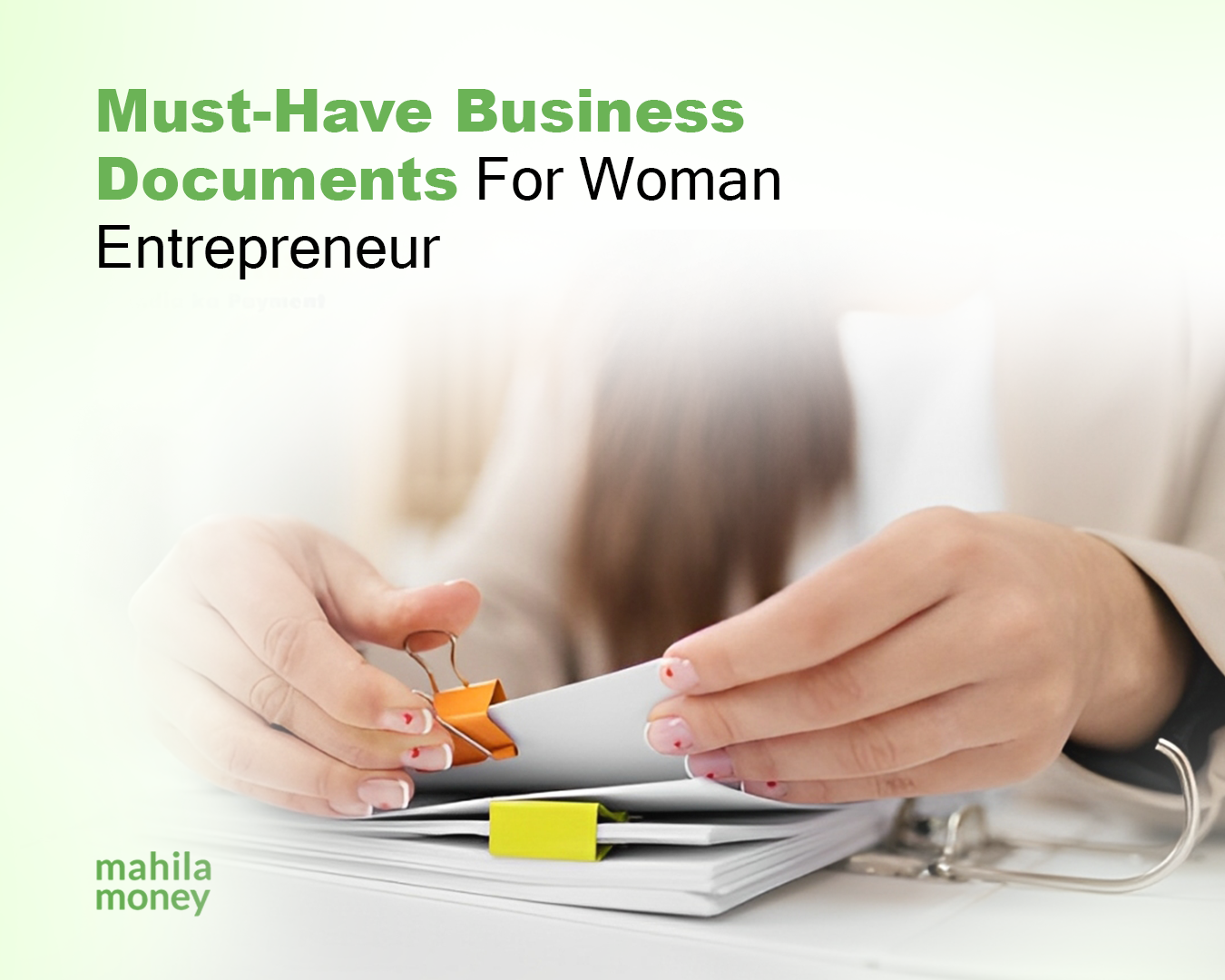Starting a business is all about dreams, doubts, and a bit of paperwork. For many women entrepreneurs in India, especially first-time founders, the journey from an idea to an income-generating venture is exciting but also dotted with practical challenges. One of the most overlooked aspects? Documentation.
Whether you’re running a homemade snack venture or planning a boutique in your neighbourhood, having the business documents required for small business in India ready can mean the difference between missing out on opportunities and grabbing them with confidence.
Let’s explore 5 must-have business documents required for small business in India and why they matter, particularly for women entrepreneurs running small businesses.
Apply For a Business Loan
Why Business Documents Matter – A Real-World Scenario
Take Pooja, a home-based soap maker from Nashik. Her products were selling well locally, and she was ready to supply to a beauty store chain. But when asked for her business registration certificate, she froze. She had everything – quality, pricing, loyal customers but not the paperwork. That one missing piece delayed her biggest order by two months.
Pooja’s story is not uncommon. Many small businesses run informally for months and sometimes years, until a vendor, platform, or bank asks for documents. That’s when panic sets in.
The below guide will help you avoid that last-minute rush. Whether you’re considering applying for a small business loan, registering for a government scheme, or just opening a business bank account, these documents will help you move faster, look more professional, and stay compliant.
5 Must-Have Business Documents Required For Small Business in India
1. Proof of Business Identity: Start with Registration
One of the most important documents required to start a small business anywhere is a registration certificate. Depending on your setup, you might register as a sole proprietorship, partnership, LLP (Limited Liability Partnership), or a Private Limited Company.
For most women-led micro-businesses, sole proprietorship is the simplest route. It can be registered under Udyam (for MSMEs), or with a local municipal body (Shop Act).
If you’re starting with a partner or planning to scale, you may register as:
- Partnership Firm – Registered partnership deed
- Limited Liability Partnership (LLP) – Certificate of Incorporation from MCA
- Private Limited Company – CIN & Incorporation Certificate from MCA
Whichever format you choose, this document becomes your business’s legal identity. It allows you to:
- Apply for a business loan
- Open a current account
- Join government schemes
- Build trust with customers and vendors
And let’s face it, when you say “I run a registered business,” people take you more seriously.
2. PAN Card & Aadhaar: Personal and Business KYC
One of the must-have business documents required for small business in India is PAN and Aadhar. Your PAN card isn’t just for income tax. It’s often required to open a bank account, register for GST, or apply for a business loan. If your business is registered as a company or LLP, it will need a separate PAN card in the company’s name.
Your Aadhaar card also plays a key role, especially in KYC verification for banks and digital payments. It’s also necessary for many government schemes for women entrepreneurs.
Remember: keep both cards updated and linked to your current mobile number to avoid any delays during verification.
3. Business Bank Account: Because Personal and Business Finances Shouldn’t Mix
It might seem easier to run everything through your personal savings account but it’s not sustainable. A business bank account helps you track income, expenses, and payments clearly. It also signals financial discipline, something banks and investors value.
To open one, you’ll usually need your registration proof, PAN, Aadhaar, and a cancelled cheque. This cheque is often asked for when applying for a small business loan, vendor payments, or e-commerce settlements.
Keeping your personal and business transactions separate makes tax filing easier too.
4. GST Registration: For Credibility and Compliance
Not every business needs to register for GST, but if your annual turnover crosses ₹20 lakh (or ₹10 lakh in some states), or if you sell across states, it becomes mandatory. Even if you fall below this limit, voluntary registration can lend your business credibility, especially if you’re planning to scale.
Having a GST registration certificate allows you to claim tax credits and build trust with B2B partners. Many marketplaces and vendors ask for this before onboarding you.
So, while it might feel like a bureaucratic step, GST can actually be a growth enabler.
5. Financial Documents: Your Income Story in Numbers
If you’re aiming to apply for credit or bring in investors, having your Income Tax Returns (ITRs) and basic financial statements ready is a must. These include your balance sheet, profit & loss statement, and bank account statements for at least the past 6–12 months.
Even if your business is small or home-based, these documents show that it’s operational and earning. A well-documented income trail helps during loan approvals, grant applications, and even when seeking distributors or business partnerships.
Organise Before You Need Them
The smartest move? Don’t wait to be asked. Create a digital folder on Google Drive or Dropbox where you keep soft copies of these documents. Label them clearly, keep them updated.
You can even maintain a running document called “Business Essentials” with renewal dates, application numbers, and key contacts.
What This Preparation Really Means
Having the essential documents for small business loan or day-to-day operations isn’t just about checking boxes. It’s about being ready for the opportunities you can’t predict. A business loan application, a startup pitch, a sudden distributor request, all of these could be game-changing. But only if you’re ready.
As Mahila Money user Nivedita Mukherjee from Delhi puts it,
“I thought I didn’t need paperwork because I sell locally. But when I wanted to sell abroad and grow beyond my area, they asked for everything – PAN, GST registration, bank proof. Thankfully, I had them all sorted.”
Being documentation-ready means saying “yes” when the big doors open.
Ready to Take the Next Step?
At Mahila Money, we support women to formalise and grow their businesses through guidance, credit, and community. If you’re ready with your documents, you’re already halfway there. These business documents required for small business in India will help you navigate through any loan procedures with ease.
Need help? Explore our loan guides, chat with our experts, or join a community talk session where we break down these topics step by step.

If you are a woman entrepreneur who wants to take your business to new heights and is in need of working capital and entrepreneurship resources, come speak to us on Mahila Money. For more such #JiyoApneDumPe live conversations, download the Mahila Money App on Play Store or visit us on www.mahila.money.




